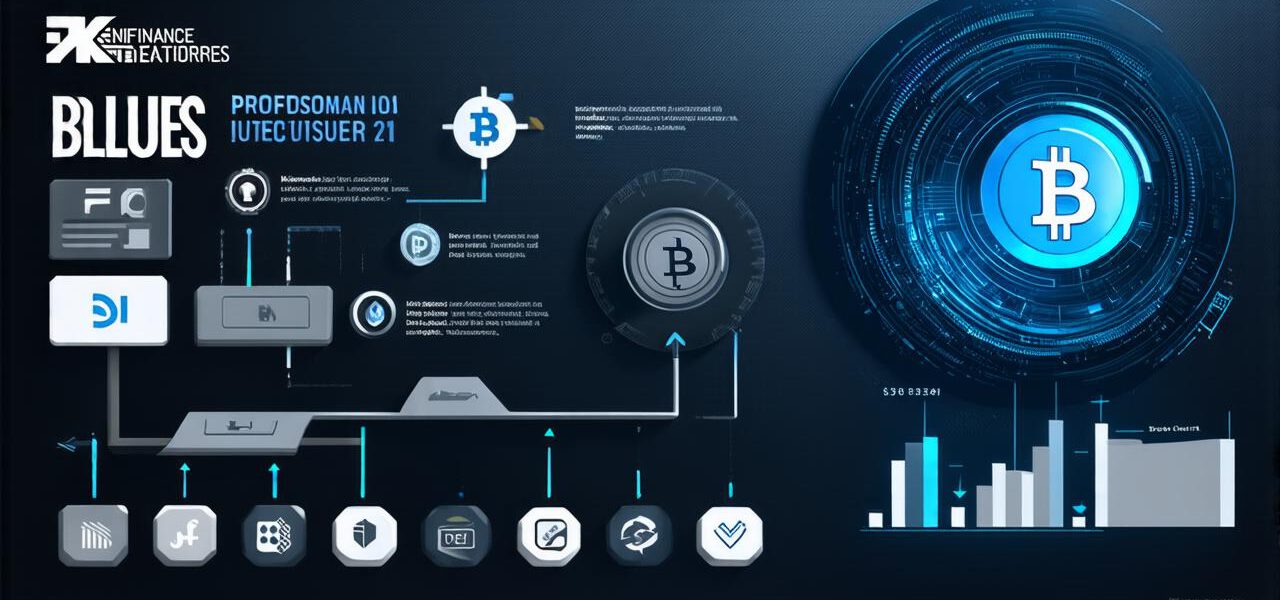
What is Crypto DeFi and How Does it Work?
Introduction
The world of cryptocurrency has grown tremendously in recent years, with millions of people around the world using digital currencies like Bitcoin and Ethereum to make transactions online. However, the world of crypto is not limited to just buying and selling cryptocurrencies. There is a whole ecosystem of financial services that have emerged in the world of blockchain technology, known as decentralized finance or DeFi. In this article, we will explore what Crypto DeFi is, how it works, and why it’s worth paying attention to for those interested in blockchain development.
What is Crypto DeFi?
Decentralized finance (DeFi) refers to a set of financial tools and services that are built on the blockchain. These include things like decentralized exchanges, lending platforms, insurance policies, and more. The idea behind DeFi is to create a financial system that is transparent, secure, and accessible to everyone, regardless of their location or financial status.
Crypto DeFi, on the other hand, refers specifically to the use of cryptocurrencies in decentralized finance applications. This means that instead of using traditional fiat currencies like dollars or euros, people can use cryptocurrencies like Bitcoin and Ethereum to participate in financial transactions on a decentralized platform.
The Benefits of Crypto DeFi
Decentralization: As the name suggests, decentralized finance applications are built on a blockchain, which means that they are completely independent of any central authority or intermediary. This means that users have more control over their own finances, and they don’t need to rely on traditional financial institutions to access financial services.
Accessibility: Decentralized finance applications are designed to be accessible to everyone, regardless of their location or financial status. This means that people from all around the world can participate in financial transactions on a decentralized platform, without needing to go through the rigorous process of opening a bank account or obtaining other forms of identification.
Transparency: Decentralized finance applications are built on a blockchain, which means that all transactions are recorded on a public ledger. This means that there is no room for fraud or manipulation, and users can be confident that their financial transactions are being recorded accurately.
Security: Decentralized finance applications are built to be secure, with strong encryption and other security measures in place to protect user data. This means that users don’t need to worry about their personal information being stolen or compromised.
Lower Costs: One of the key benefits of using crypto DeFi is that it can often be cheaper than traditional financial services. For example, decentralized exchanges typically charge lower fees than centralized exchanges, and lending platforms often offer better interest rates than traditional banks.
Real-Life Examples of Crypto DeFi in Action
Decentralized Exchanges: One of the most well-known examples of crypto DeFi is decentralized exchanges, which allow users to trade cryptocurrencies without the need for an intermediary like a centralized exchange. Some popular decentralized exchanges include Uniswap and Sushiswap.
Lending Platforms: Another example of crypto DeFi is lending platforms, which allow users to borrow and lend cryptocurrencies on a decentralized platform. Some popular lending platforms include Aave and Compound.
Insurance Policies: Crypto DeFi has also given rise to a new generation of insurance policies that are built on the blockchain. These policies allow users to insure their cryptocurrencies against things like theft, hacking, and other forms of loss. Some popular crypto insurance platforms include Nexus Mutual and The Hedge Fund.
Yield Farming: Yield farming is another popular example of crypto DeFi, where users can lend their cryptocurrencies to a decentralized platform in exchange for a share of the profits generated by that platform. Some popular yield farming platforms include APRA and Yearn Finance.



